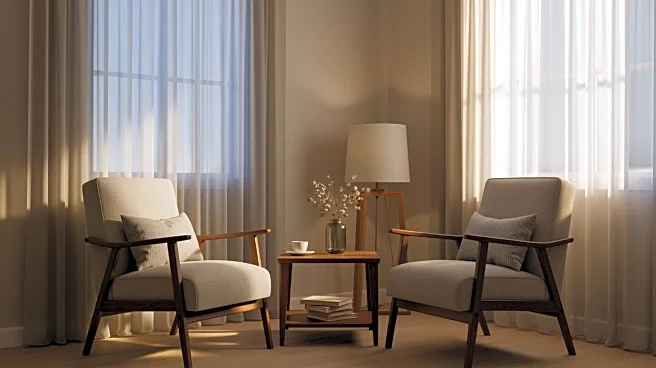What's Happening?
Olivia Galli explores UNIQLO's fall/winter collection at their Fifth Avenue flagship store in New York. The collection focuses on wardrobe essentials that blend functionality with style, featuring items like luxe knitwear, classic straight-leg denim, and structured outerwear. These pieces are designed to seamlessly integrate into daily wear, offering versatility from weekday commutes to weekend outings. The collection reflects UNIQLO's refined-utilitarian ethos, providing foundational wardrobe pieces that are both practical and stylish.
Why It's Important?
UNIQLO's emphasis on essential wardrobe pieces highlights a growing trend in fashion towards minimalism and functionality. This approach caters to consumers seeking versatile clothing that can adapt to various settings without compromising style. By focusing on essentials, UNIQLO positions itself as a go-to brand for consumers looking to simplify their wardrobe while maintaining a polished appearance. This strategy may influence other fashion retailers to prioritize quality and versatility in their offerings, impacting consumer buying habits and industry standards.
What's Next?
As UNIQLO continues to promote its essential wardrobe pieces, it may see increased consumer interest and sales, particularly among those who value practicality and style. The brand's collaboration with JW Anderson and its focus on universally flattering silhouettes could attract a broader audience. Other fashion brands might follow suit, emphasizing essential and versatile clothing in their future collections. This shift could lead to a more sustainable fashion industry, with consumers investing in fewer, higher-quality pieces.
Beyond the Headlines
UNIQLO's approach to fashion essentials may contribute to a cultural shift towards sustainable consumerism. By encouraging the purchase of versatile and durable clothing, the brand supports a move away from fast fashion and towards more mindful consumption. This could have long-term implications for environmental sustainability, as consumers prioritize quality over quantity, reducing waste and the demand for disposable fashion.









